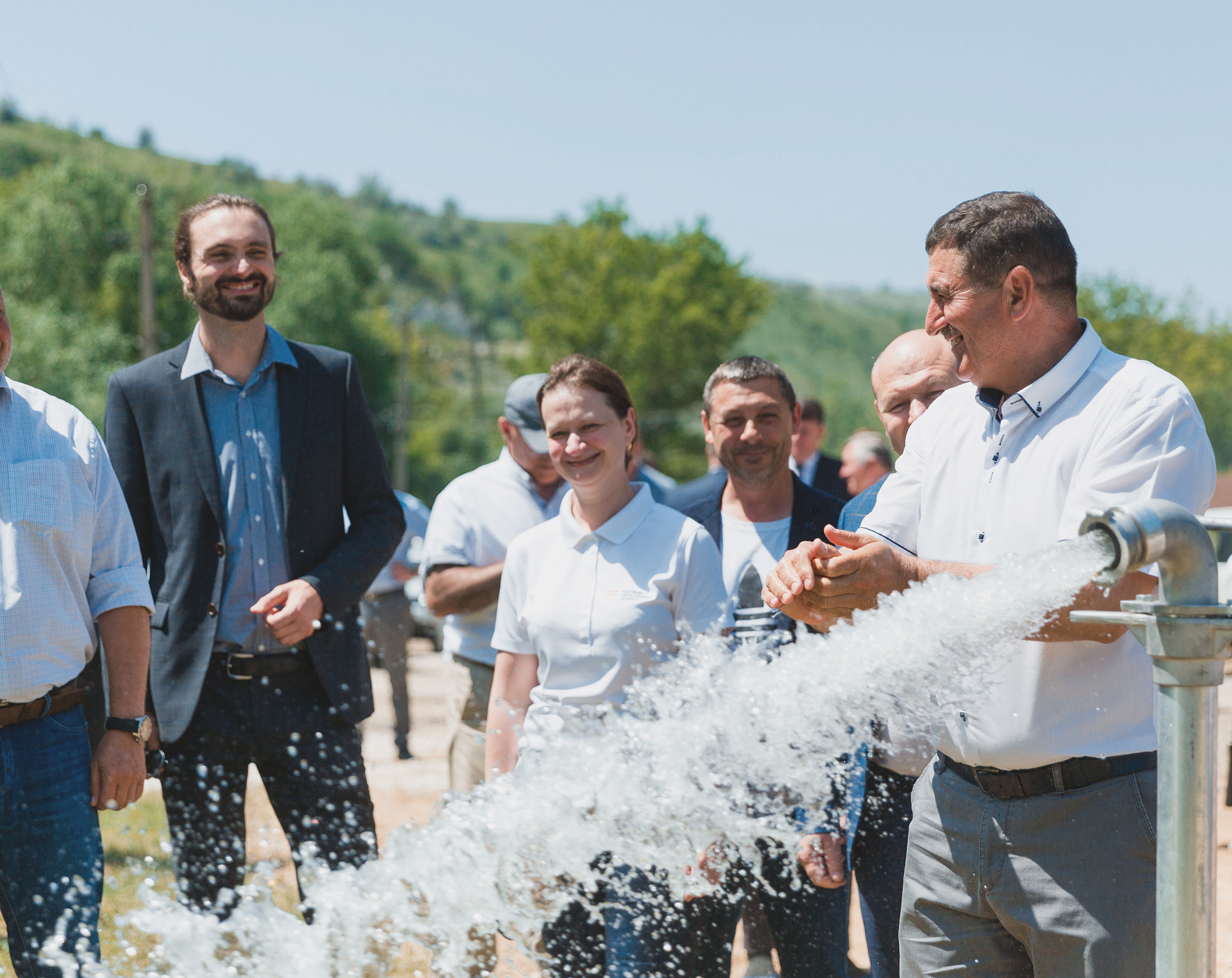
Water and Sanitation Project Moldova (ApaSan)
Location
Republic of Moldova
project period
Phase 3: 01.06.2015 – 31.05.2019
Phase 2: 01.06.2011 – 31.05.2015
Phase 1: 31.12.2008 – 30.04.2011
client
Swiss Agency for Development and Cooperation (SDC)
Services provided
Project implementation
Partner organisation
Project website
The Swiss Agency for Development and Cooperation (SDC) and the Austrian Development Cooperation (ADC) are cooperating with the Government of Moldova to support the population in rural areas and small towns. Skat was mandated to implement the Swiss and Austrian support, the Water and Sanitation Project ApaSan for improving the life conditions of people living in villages by improving their access to water and sanitation services that are sustainable and of good quality. ApaSan supported Moldovan institutions at all levels so that they are able to respond to the needs for water supply and sanitation services of the rural population, including the most vulnerable. In the final phase, the project aimed at empowering and strengthening the capacities by transferring know-how on rural water supply and sanitation generated in previous phases to Moldovan institutions, and to institutionalise functions that ApaSan has fulfilled so far in the implementation of sustainable water and sanitation projects, so that these institutions are able to improve their performance in responding to the needs of the rural population for water supply and sanitation services. Community mobilization, public awareness raising and communication on water scarcity, water use, sanitation and hygiene, tailored to enhance citizen participation were a central part of the approach.
Goals and objectives
The rural population in Moldova seriously lacks access to safe water supply and sanitation. People in rural areas suffer much worse conditions than their urban counterparts, and within rural areas, it is the poorest and weakest groups that have lowest access to good services. The water and sanitation sector institutions and local governments in Moldova faces serious challenges in better responding to the needs of the rural population. The objective of the ApaSan was that Moldovan institutions at all levels respond to the needs for water supply and sanitation services of the rural population, including the most vulnerable, ethnic minorities, youth and women. The project’s main approach was to create favourable conditions for up-scaling of the services delivery models for rural water and sanitation developed since 2001.
In the third and last phase (2015-2019), ApaSan worked to achieve the following changes in Moldovan sector institutions to improve overall governance of water and sanitation:
- National level institutions plan investments, fund water supply and sanitation infrastructure, and provide technical assistance to rural municipalities for implementation and operation
- Small local and multi-municipal/regional operators provide water and sanitation services of adequate quality to rural communities
- Relevant actors (sector specialists, educational/research institutions, national funds, etc.) apply innovative solutions that address technical, managerial and inclusiveness issues for rural WS&S
The overall strategy of the project was to enable Moldovan institutions to respond better to the needs of the rural population for water supply and sanitation services. The main instruments applied for the transfer of know-how, as well as strengthening and building capacities of partner institutions included technical assistance and training of staff of partner institutions as well as co-financing and joint implementation of water supply and sanitation projects.
Provided services and achieved results
Skat Consulting Ltd. provided all services to implement the project’s outputs through the project team in Moldova and backstopping staff from headquarters. These services and the achieved results include:
- Support national agencies in coordinating approaches for country wide strategic water and sanitation planning and support establishment of the plans – tools developed and national approach for strategic planning agreed
- Support national funds that invest in rural water and sanitation infrastructure to establish monitoring systems for effectiveness, efficiency, and sustainability of investments – partnership with national funds and new co-financing arrangements developed for sustainability of investments
- Transfer all knowledge on school sanitation to national and district health, education and environmental authorities, to enable them promoting hygienic, comfortable, inclusive and environmentally safe sanitation facilities in rural schools - Public health and educational authorities endorsed and disseminated the Guideline on School Sanitation, civil society empowered to voice their needs linked to better school sanitation
- Support to CALM in providing continuous advice and training services on technical, managerial and inclusiveness issues to small local water and sanitation operators – support services provided to more than 100 LPAs/operators
- Support small municipalities and urban utilities to conclude contracts for delegation of water and sanitation services from small rural municipalities to multi-municipal/regional operators – new service provision arrangement with 9 contracts of delegation of services signed
- Develop, document and disseminate innovative solutions for rural water supply and sanitation addressing technical, managerial and inclusiveness issues – set of innovative solutions documented and disseminated (see www.apasan.md)
- Facilitate the Moldovan Community of Practice (CoP) for water supply and sanitation and ensure the transfer of lead and ownership to its members – independent vibrant knowledge platform
- Assure specific attention to vulnerable groups – localities reflecting the ethnic diversity of the country including Gagauzia and Transnistria, strategy to address equal rights, good practices in inclusion and non-discrimination
- Manage the implementation of infrastructure projects, through preparing infrastructure projects on technical and social levels, procuring construction works either directly or jointly with partner intuitions, ensuring construction supervision and quality control, working with communities and authorities to establish sustainable operating structures
Modalities and approaches in project implementation
- Water and sanitation sector as an entry point for improved governance;
- Developed policy influencing strategy to ensuring long-term policy influencing planning;
- Use of the country system to the maximum extent possible;
- Fostering ownership and sustainability with national/local co-financing and citizens’ participation.

